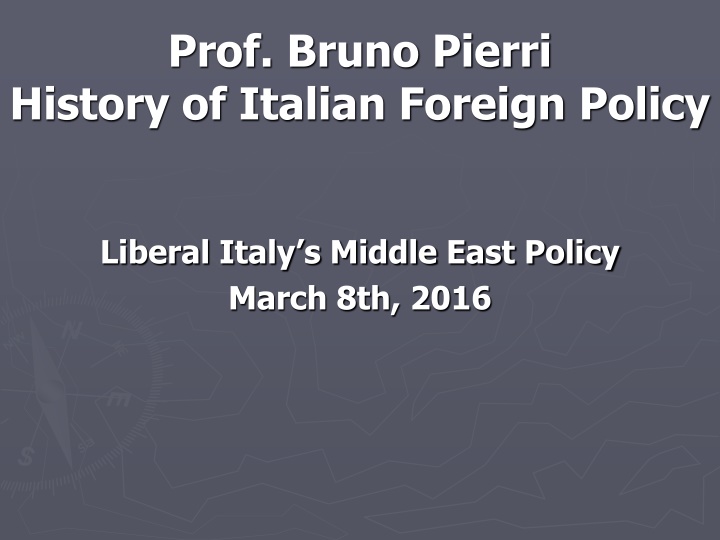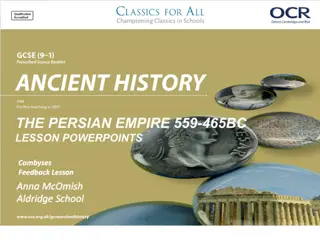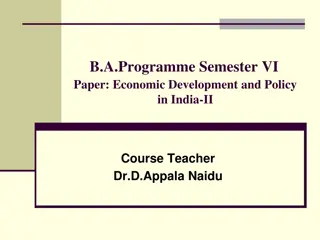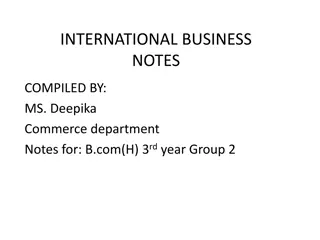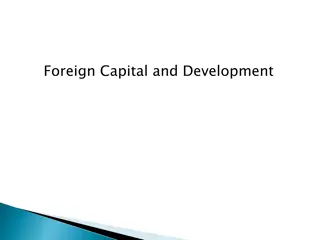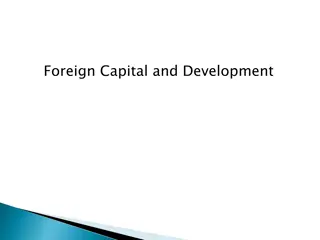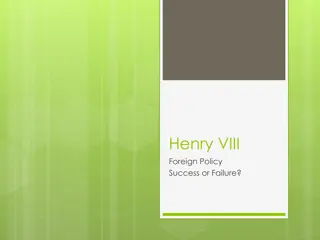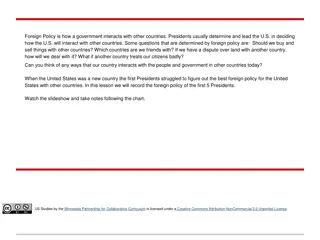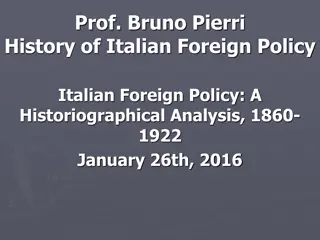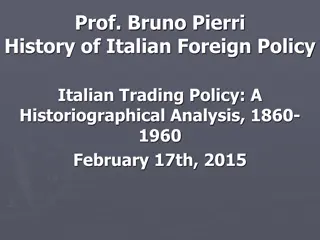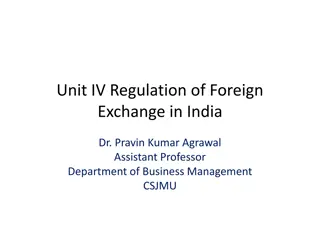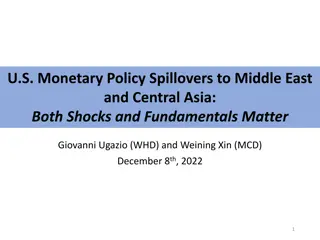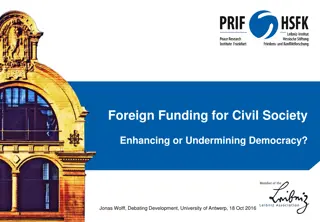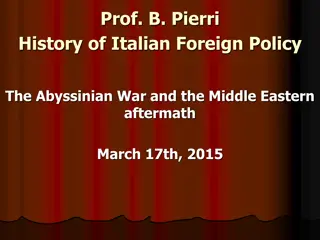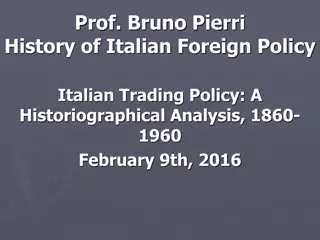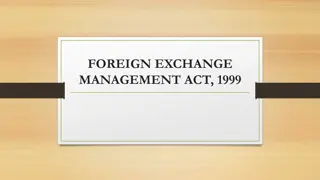Italian Foreign Policy in the Middle East: Historical Perspectives
The historical analysis delves into Italian foreign policy in the Middle East, emphasizing the divergent scholarly views on Fascist-era objectives and the territorial aspirations of Mussolini's regime. It explores pre-Fascist interests, colonial endeavours, and the complex interplay between traditional foreign policies inherited by Mussolini and the expansionist visions of Fascism.
Download Presentation

Please find below an Image/Link to download the presentation.
The content on the website is provided AS IS for your information and personal use only. It may not be sold, licensed, or shared on other websites without obtaining consent from the author.If you encounter any issues during the download, it is possible that the publisher has removed the file from their server.
You are allowed to download the files provided on this website for personal or commercial use, subject to the condition that they are used lawfully. All files are the property of their respective owners.
The content on the website is provided AS IS for your information and personal use only. It may not be sold, licensed, or shared on other websites without obtaining consent from the author.
E N D
Presentation Transcript
Prof. Bruno Pierri History of Italian Foreign Policy Liberal Italy s Middle East Policy March 8th, 2016
Historiographic Debate Italian school of thought Renzo De Felice: Fascism pursued opportunistic policy, using Arab nationalism as a lever towards Britain and France making concessions Arabs sacrificed on altar of agreements with London Rosaria Quartararo: despite Mussolini s attempts to influence Middle East and Red Sea areas, he was always aiming at reaching agreement on Europe. Had it not been for British and French refusals, the Duce would have not joined Hitler
Anglo-Saxon Historiography Territorial Expansion and Ideology: Italian Lebensraum in Mediterranean and Middle East Mussolini aimed at making up a real Empire, stretching from East Africa and Red Sea, through North Africa up to the Balkans: in order to achieve this, Italy had to confront democracies Myth of Rome and social Darwinism
Triangle of Aims A) Traditional foreign policy: Mussolini inherited Libyan and Ethiopian issues; Balkan aims always claimed by Italy B) Fascist expansionist policies C) Colonial and economic considerations Triangle broken with WW2: expansion through military conquest, leading to other annexations at peacetable Fascist foreign policy rarely influenced by domestic considerations: top-down policy decided by lite of nation Politics not really influenced by economy, despite some Italian financial and commercial interests, and despite need of Middle East oil
Pre-Fascist Interests Northern Industrial imperialism: quest for markets, raw materials and investment opportunities Southern demographic policies: search for land where surplus population could be settled in prosperity under Italian flag Unlike European colonial powers, in Italy the State had to encourage capitalists to invest in colonies
Beginning of colonial policy Italy aimed at controlling Tunisia, but French initiative turned her into protecorate in 1881 Italian colonialism shifted to Horn of Africa, by gaining Assab and Massawa on Red Sea (1882-1885) Some Italian entrepreneurs already working there Italian aspirations backed by UK, but not towards Sudan
Crispi Revolutionary spirit and strong patriotism Power politics and civilization mission Rivalry with France and Mediterranean expansion Austria as a stronghold against Russian expansionism in Balkans and Slavic hegemony over Adriatic
Treaty of Wuchale (Uccialli) Agreement through which the whole of Ethiopia could be turned into Italian protectorate May 2, 1889 Treaty of Wuchale: according to Italian interpretation, Ethiopia not only recognised Italian control on Eritrea, but also became an Italian protectorate 1890 Eritrea became Italian colony
Problems of Interpretation Italian translation obliged Ethiopian Government to use Italian diplomacy to have relations with all other European nations Ethiopian text provided only the faculty for Addis Abeba to use Italian diplomacy in foreign relations In 1890 Menelik had invited Russian and British Sovereigns to his own coronation: He was replied that they could not directly answer him, due to the treaty undersigned Ethiopia started purchasing weapons and military operations against Italy began
Adwa January 1895: Italians occupied Tigray, formally part of Ethiopian empire, but autonomously ruled by a rival of Menelik s Italy hoped to gain a position of strength from which negotiate with Negus Menelik broke the treaty and waged war on Italy March 1, 1896: Italian troops scattered and with bad liason
The aftermath Crispi resigned October 1896 treaty of peace: negus acknowledged Italian sovereignty on Eritrea, but treaty of Wuchale was abrogated and Italy gave up any interference in Ethiopian politics
Italo-Turkish War 1911-1912 French and British control on Northern Africa France tempted to extend influence along the whole African coast In order to pursue her interests, Italy decided to occupy Libya Enonomic penetration already on for years Constantinople tries to harm Italian projects and backs German trade Italian allies thought war against Turkey might weaken Ottoman Empire, thus favouring nation States in the Balkans, as well as Russian influence
The War Declaration of war 29.09.1911 Austria thought of prehemptive war against Italy, but at the same time objected departure of Turkish ships (better to localise conflict) However, no action taken to stop war: neutrality to gain Italian amity Dodecanese islands occupied (Apr 1912). Austria worried about widening of conflict towards Turkish shores France and Britain aimed at Mediterranean entente with Italy Spring 1912 alliance Serbia-Bulgaria-Greece- Montenegro 8.10.1912: war against Turkey 18.10.1912 Peace of Lausanne and assignment of Libya to Italy: immediate great powers recognition
